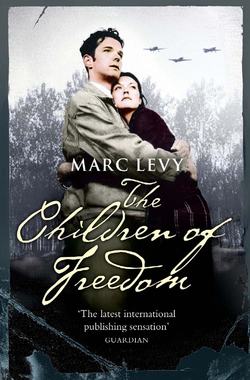Читать книгу The Children of Freedom - Марк Леви, Marc Levy, Marc Levy - Страница 8
1
ОглавлениеYou must understand the context within which we were living; context is important, as in the case of a sentence, for example. Once removed from its context it often changes its meaning, and during the years to come, so many sentences will be removed from their context in order to judge in a partial way and to condemn more easily. It’s a habit that won’t be lost.
In the first days of September, Hitler’s armies had invaded Poland; France had declared war and nobody here or there doubted that our troops would drive back the enemy at the borders. Then the flood of German armoured divisions had swept through Belgium, and in a few weeks a hundred thousand of our soldiers would die on the battlefields of the North and the Somme.
Marshal Pétain was appointed to head the government; two days later, a general who refused to accept defeat launched an appeal for resistance from London. Pétain chose to sign the surrender of all our hopes. We had lost the war so quickly.
By swearing allegiance to Nazi Germany, Marshal Pétain led France into one of the darkest periods of her history. The Republic was abolished in favour of what would henceforth be called the French State. The map was divided by a horizontal line and the nation separated into two zones, one in the north, which was occupied, and the other in the south, which was allegedly free. But freedom there was entirely relative. Each day saw its share of decrees published, driving back into danger two million foreign men, women and children who now lived in France without rights: the right to carry out their professions, to go to school, to move around freely and soon, very soon, the very right to exist.
The nation had become amnesiac about the foreigners who came from Poland, Romania, Hungary, these Spanish or Italian refugees, and yet it had desperate need of them. It had been vitally necessary to repopulate a France that, twenty-five years earlier, had been deprived of a million and a half men who had died in the trenches of the Great War. Almost all my friends were foreigners, and they had all experienced the repression and abuses of power already perpetrated in their country for several years. German democrats knew who Hitler was, combatants in the Spanish Civil War knew about Franco’s dictatorship, and those from Italy knew about Mussolini’s Fascism. They had been the first witnesses of all the hatred, all the intolerance, of this pandemic that was infesting Europe, with its terrible funeral cortège of deaths and misery. Everyone already knew that defeat was only a foretaste; the worst was yet to come. But who would have wanted to listen to the bearers of bad news? France now no longer needed them. So, whether they had come from the East or the South, these exiles were arrested and interned in camps.
Marshal Pétain had not only given up, he was going to collude with Europe’s dictators, and in our country, which was falling asleep around this old man, they were all already crowding around: the head of the government, ministers, prefects, judges, the police, and the Militia; each more eager than the last to carry out their terrible work.
